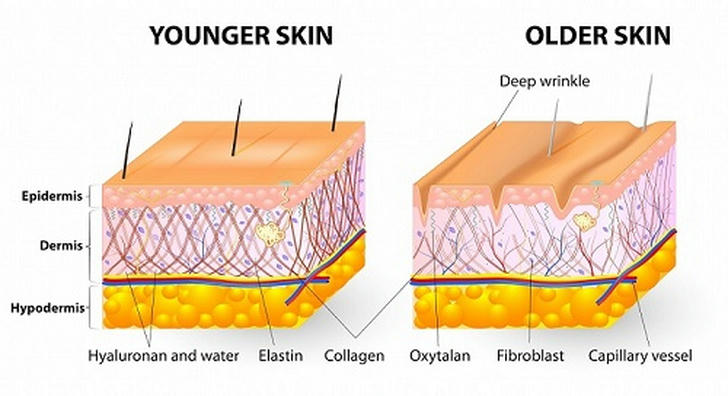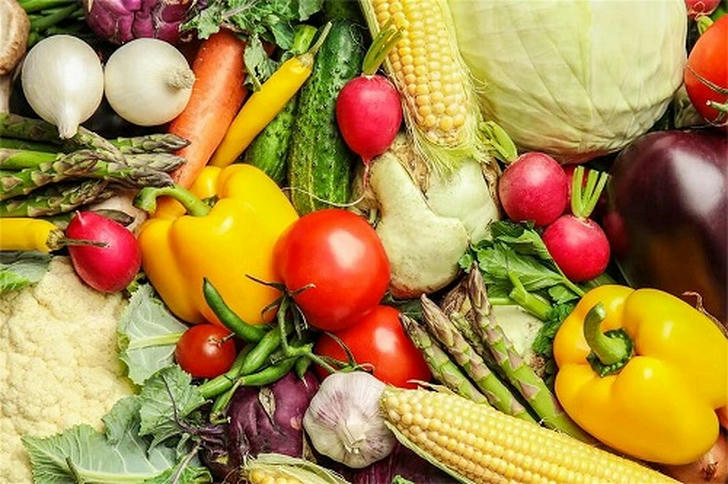The Key to Youth: 10 Foods That Naturally Boost Collagen
On the road to youth and health, there is one substance that always occupies a central position - collagen. As the most abundant protein in the human body, collagen not only gives our skin elasticity and radiance, but also plays an indispensable role in maintaining the health of bones, joints and muscles.
Scientific Analysis of Collagen
Collagen is a complex protein that is widely found in the skin, bones, muscles, tendons and ligaments of the human body. It is like a natural "glue" that tightly connects our body structures together. However, as we age, the production of collagen in the human body gradually decreases, especially after the age of 25, this process will accelerate. Ultraviolet rays, environmental pollution, bad living habits (such as smoking and drinking), and unhealthy diets can further aggravate the loss of collagen. The results are obvious: sagging skin, more wrinkles, and stiff joints are all obvious signs of aging.
But don't worry, through scientific diet and lifestyle adjustments, we can effectively support the body's collagen production and delay the aging process.
Benefits of Collagen
Increasing your collagen intake not only improves your skin, but also provides multiple health benefits:
Skin Health: Collagen helps maintain skin elasticity and moisture, reduces the appearance of wrinkles and fine lines, and makes the skin look firmer and younger.
Joint Protection: Collagen is the main component of cartilage, which can relieve joint pain and prevent degenerative diseases such as arthritis.
Hair and Nails: Collagen can strengthen hair and nails and prevent them from being brittle and breaking.
Gut Health: Collagen helps repair the intestinal mucosa and improve the function of the digestive system.
10 Foods That Boost Collagen Naturally

Bone Broth
Bone broth is a natural source of collagen, made from animal bones and connective tissue that are cooked for a long time. It is not only rich in collagen, but also contains minerals such as calcium, magnesium, and phosphorus, making it an ideal choice for supporting skin and joint health.
Fish
Deep-sea fish such as salmon and sardines are not only rich in collagen, but also rich in Omega-3 fatty acids, which can promote skin health and reduce inflammation.
Eggs
The egg whites are rich in proline, a key amino acid that promotes collagen synthesis. The yolks are rich in vitamins A and D, which help repair and regenerate the skin.
Citrus fruits
Citrus fruits such as oranges, lemons, and grapefruits are rich in vitamin C, which is an essential nutrient for collagen synthesis. Vitamin C also neutralizes free radicals and slows down skin aging.
Leafy greens
Leafy greens such as spinach and kale are rich in chlorophyll and antioxidants, which can promote collagen production while protecting the skin from UV damage.
Berries
Berries such as blueberries, strawberries, and blackberries are rich in antioxidants and vitamin C, which can reduce oxidative stress and help the body synthesize more collagen.
Nuts and seeds
Almonds, walnuts, flax seeds, etc. are rich in vitamin E and healthy fats, which can protect the skin barrier and promote collagen production.
Garlic
The sulfur compounds in garlic are key components of collagen synthesis. It also contains antioxidants that can help repair damaged collagen fibers.
Tomatoes
Tomatoes are rich in lycopene and vitamin C, which can protect the skin from UV damage and promote the production of collagen.
Beans
Beans such as black beans and chickpeas are rich in protein and amino acids, and are high-quality plant sources that support collagen synthesis.
Lifestyles that promote collagen
In addition to diet, the following lifestyles can also help increase collagen levels:
Sun protection: UV rays are one of the main causes of collagen loss, so using sunscreen every day is key to protecting the skin.

Quit smoking and limit alcohol: Smoking and excessive drinking will accelerate the decomposition of collagen. Quitting smoking and drinking in moderation can help keep the skin young.
Sufficient sleep: Sleep is an important time for the body to repair and regenerate, and sufficient sleep helps the synthesis of collagen.
Moderate exercise: Regular exercise can promote blood circulation and help nutrients be better delivered to the skin and joints.
Collagen supplements
If it is difficult to meet the demand for collagen through diet, you can consider supplements. Common collagen supplements on the market include hydrolyzed collagen peptides, fish collagen, etc. When choosing, you should pay attention to the purity and source of the product, and it is best to use it under the guidance of a doctor or nutritionist.
Rejuvenate from inside and outside
The loss of collagen is a natural part of aging, but through scientific diet and lifestyle adjustments, we can effectively delay this process. Starting today, try to incorporate these collagen-rich foods into your daily diet, combined with healthy lifestyle habits, and rejuvenate from the inside out!
